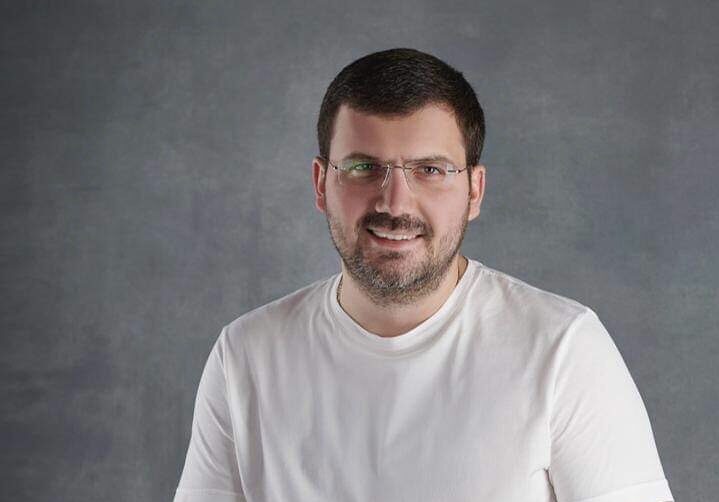Despite famous oriental bazaars with their abundance of delicious fruits, vegetables, melons, watermelons, and dried fruits seemed unshakable in Uzbekistan for hundreds of years, the country’s horticulture trade is rapidly moving towards modern, convenient, and consumer-friendly supermarkets of late. Almost every month, both ambitious local chains and international retail operators announce their entrance to the market.
Roman Sayfulin, the CEO of Makro, which is the largest supermarket chain Uzbekistan, explains in his interview with EastFruit about how difficult it is for supermarkets to compete with traditional bazaars and what chains cannot yet offer compared to bazaars and why. Also discussed was the current lack of high-quality retail space and work in the regions as well as difficulties with assortment, local suppliers, VAT, quality standards of fresh fruits and vegetables, and the future of online trading in fruits and vegetables in Uzbekistan.
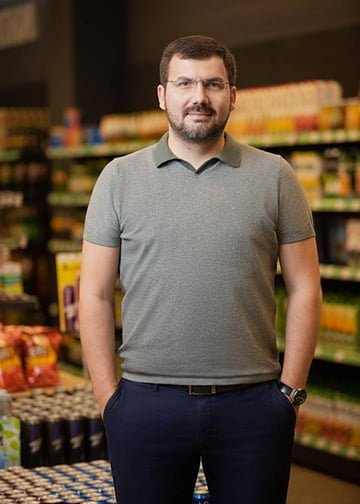
Video of the interview, which was conducted by Andriy Yarmak, an economist of the Investment Centre of the Food and Agriculture Organization of the United Nations (FAO), is available for viewing on EastFruit’s YouTube channel by clicking here.
“Standardization is what sets our network apart from the markets”
– Roman, earlier you stated that the main competitor of supermarkets in Uzbekistan is traditional Uzbek bazaars. Based on this, who is the most loyal customer in supermarkets and who still goes to the bazaars? What are your advantages and disadvantages over bazaar trading?
If we talk about our loyal customer base, then I always say that the Makro supermarket chain has stores for all age and social groups – youth and adults, men and women, students and workers. Everyone who comes to our stores should be satisfied with their purchase. This is confirmed by our work on the development of the first price categories, premium goods, middle departments.
If we talk about the fruit and vegetable segment, the bazaar is a very strong competitor. From communication with suppliers, I can conclude that our network in many categories of the fruit and vegetable segment purchases only 1% of the output in the country. I, myself, go to the bazaar during the fruit and vegetable season; the best merchandisers work there. For example, during the peach season, products from all regions of Uzbekistan are presented at the bazaars. The same goes for cherries. However, of note is that all this is present on the markets in relatively small volumes. This is a premium product known far beyond the borders of Uzbekistan but, unfortunately, most producers cannot guarantee the delivery volume needed by supermarket chains and this is our biggest problem. We, as a network serving on average about 85,000 customers daily, must provide the necessary volumes of products in stores located throughout Uzbekistan.
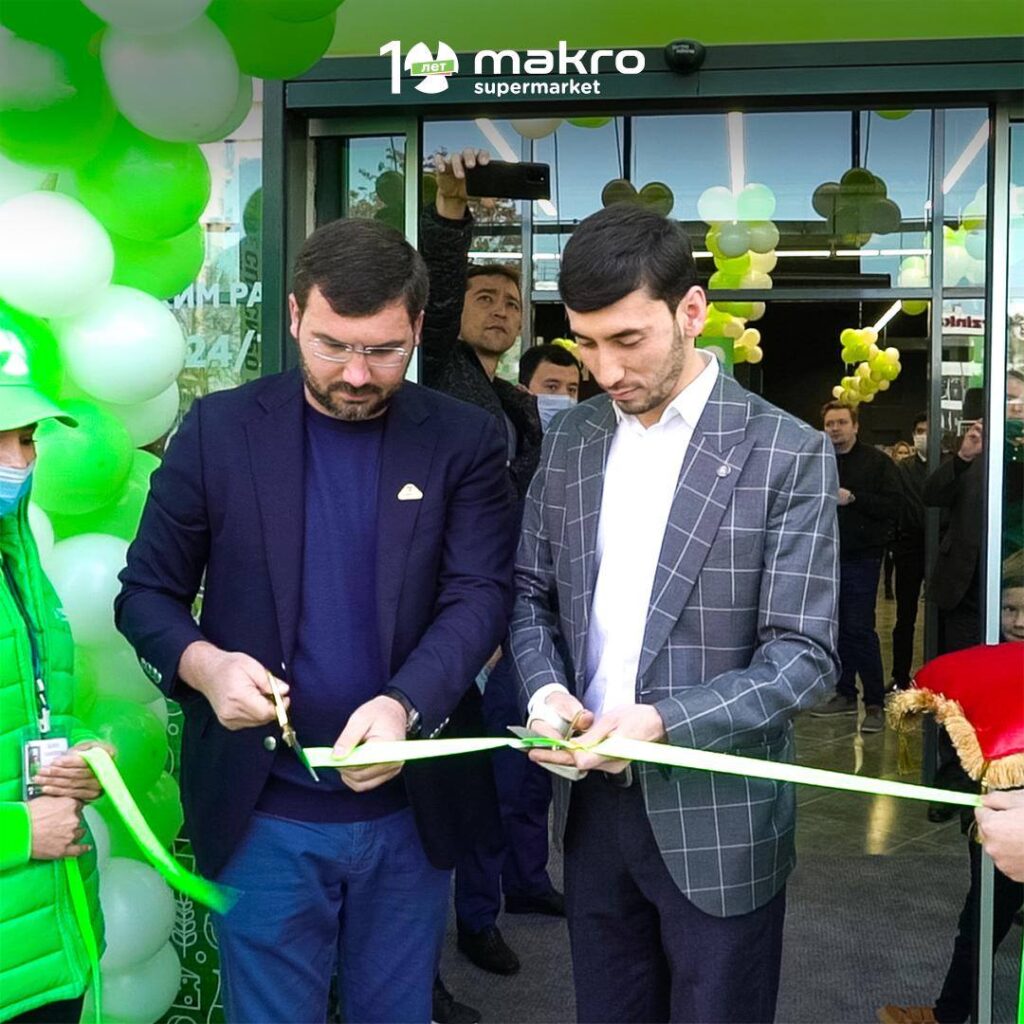
For this, we have our own large distribution centre (DC). This is a distinctive feature of our network over our competitors, which in many regions give fruit and vegetable products for outsourcing. We try to ensure the regularity of deliveries but, naturally, there are also interruptions.
I believe that our great merit in the horticulture trade is working with suppliers in terms of standardization because our customer wants to find, for example, the same tomato in each of our stores. We are talking about the standardization of a local product as imported goods, as a rule, enter the network already standardized. Why am I talking about this? The point is that standardization is what sets us apart from bazaars. Here you will find quality products of the same standard in the required volume all year round. At the bazaar, you can see premium products, which we will not have due to the fact that we do not position ourselves as a premium-format store. Yet, the premium segment on the market will be presented in small volumes during a certain short period of the season.
– The news regarding the Carrefour retail chain entering the food retail market in Uzbekistan, it seems that the country has already begun to feel a shortage of high-quality retail space. Is it true? Also, do you invest in your own retail property or do you prefer to rent it?
The commercial real estate market in Uzbekistan is not saturated. This applies to both the capital city of Tashkent and the regions of the country. This is not about the first floors of residential complexes but about professional commercial real estate like shopping centres and there is not enough space on the market. If we talk about the format of medium-sized supermarkets, there are still such options, but not for super- and hypermarkets. In this segment, tough competition is brewing today in connection with the entry of the Carrefour network into the retail market of Uzbekistan. In addition, a large Kazakh chain wants to enter (Magnum Cash & Carry). In Tashkent, there are not many vacant places yet in order to build a classic hypermarket.
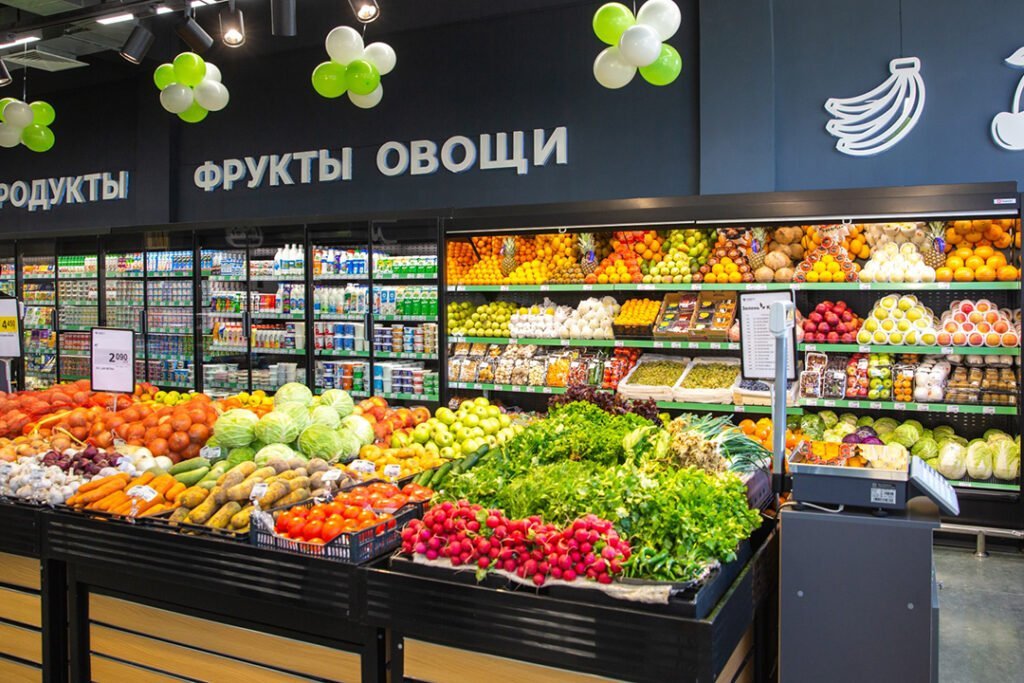
We have chosen a different direction for ourselves. We launched hypermarket projects and then had to reduce the area by almost 30% due to the fact that we could not provide consistent supplies of the assortment that is necessary for this format. Therefore, our strong point is a classic supermarket with an assortment of goods up to 25,000 items. We are abandoning hypermarkets and increasingly moving towards the format of express stores, which are more accessible in terms of location for the buyer. However, in this segment, the competition is even greater. Since the area of our express stores today range from 70 to 500 square meters, on average it is 220 square meters and so we compete with Havas, which is actively developing in this direction. In addition, at the end of last year, the Baraka Market network entered the market, which is also actively developing and has already announced plans to open 800 new stores within 2 years.
Due to competition in the retail market, the price of retail space in the country has doubled in the last 6 months alone. At the same time, our activity is completely based on the lease of retail space; we own only 6 stores.
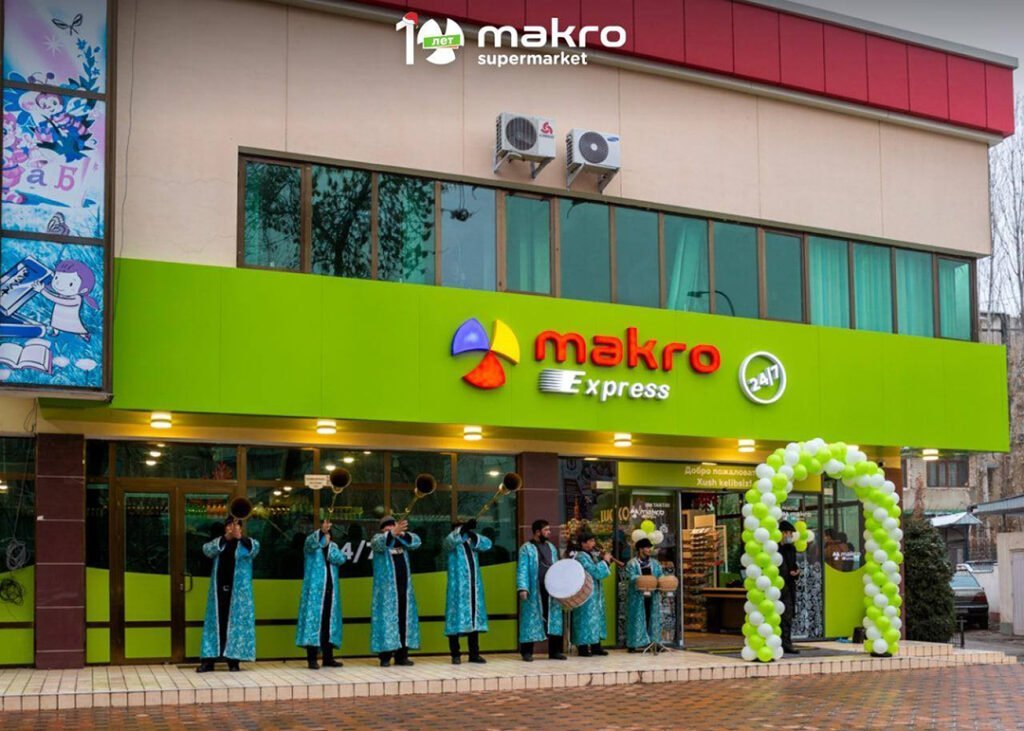
– Small-format stores in Uzbekistan offer help to customers in the form of a tab in which debts for goods are recorded. In this regard, do you plan to attract the format of selling goods on credit in your stores?
Indeed, such a situation related to the human factor is very important and take place during trade throughout Uzbekistan. Very often in small stores, the owner, cashier, and seller are one person and he can sell goods on credit because, as a rule, he knows all his customers in person.
Over the past year, we have been actively working on launching an express lending program in our network. Now, we are actively negotiating with one of the banks to introduce such a service. We do not want to make money on this ourselves since this is a completely separate business practice to us, but we want to be able to provide this service to our customers. For this, an express checkout service must be introduced in the network, which will be provided to our customers at the cash registers.
“By the end of this year, the Makro network plans to be represented in 35 cities of Uzbekistan”
– The development of your network in the regions is a surprise. According to experts, it is not always worth rushing to launch in the regions given the lower average amount of a customer’s checkout receipt than in the capital. In this regard, why are you actively expanding in the regions?
Actually, the largest checkout is not in the capital. The largest average checkout in our chain stores is in the city of Samarkand. In this regard, we plan to open our “makrocity” format store in this city, which is a large supermarket with an area of 2,500 square meters, in March of this year. In addition, shops in Bukhara show good results. Therefore, we are entering the regions with our classic store format. Today, we are operating in 26 cities of Uzbekistan and, by the end of the year, we plan to be represented in 35.
Speaking about entering the regions, you need to understand that 6 years ago there was enough space in Tashkent to open new stores. However, today there is not. We want the Makro chain to be known in every region. In addition, when we want to expand to a certain city, we also see other cities along the way, which, from the point of view of logistics, are convenient for us to enter. Additionally, we also look at the experiences of large Russian and Ukrainian companies, which operate throughout the country. Based on this, the sooner we enter a particular region, the stronger our market position will be.
– In essence, you are talking about strengthening the Makro brand?
Yes, exactly that. I am sure that our customers will not fully satisfy all of his or her needs in our store, but we want him or her to buy as many items as possible in our network. For this, we are working on such components as price, quality, and product range. However, I repeat, it is difficult to cover the entire range of consumer preferences, not only in Uzbekistan but from my observations, for European chains as well.
Speaking about the strength of the brand and the strength of customer loyalty, I want to say that it means a lot to us. In our network, we have a loyalty program and a digital cash-back program. Another important factor is that the more stores and retail spaces there are, the faster we can go down the path of reducing product prices.
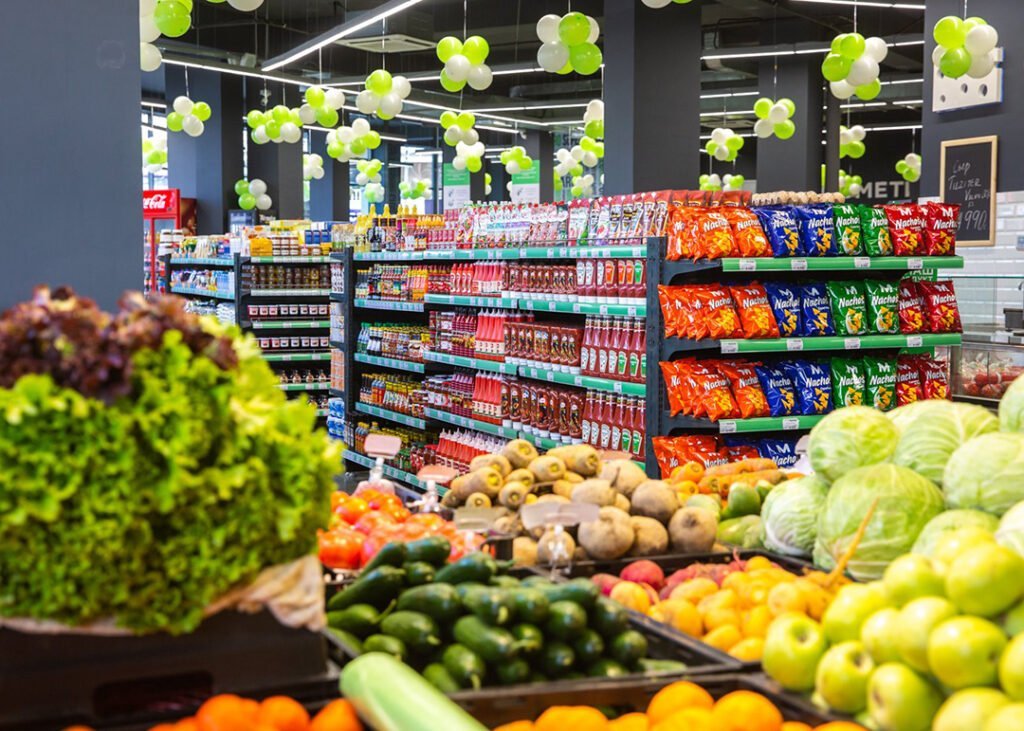
“Fruit and vegetable products are the sales engine”
– Are the fruit and vegetable departments in your network the centre of profit generation or are they unprofitable but a necessary addition? What is the share of fresh fruits and vegetables in the total revenue of the chain?
It is fundamentally important for us to have fruits and vegetables in our stores and they are represented throughout our network. They are, figuratively speaking, the engine driving our sales. If we talk about revenue, then in 2018 the share of fruits and vegetables was 11.3%. This is a fairly high figure. In 2019, after the introduction of VAT, the share decreased to 10.1%. This happened due to the fact that we began to lose in price to traders in bazaars, which were not subject to VAT. Last year we managed to increase the share of proceeds from the sale of fruit and vegetable products by 0.5 percentage points.
It should be understood that the behavioural model of buyers in Uzbekistan is very different from the northern countries. Our people prefer to buy fresh fruits and vegetables every day. Nobody buys them a week in advance.
– According to the EastFruit retail audits of supermarket produce departments, Makro is not the most competitive in this segment. Taking into account the presence of your own distribution centre and rather large sales volumes, what further steps do you envision to increase the competitiveness of the fruits and vegetables in your stores?
An audit by your platform is a fear for our pricing department. After the publication of your data, they received comments, first of all, from me. It was also an unpleasant surprise for me that in terms of prices for fruits and vegetables, we turned out to be the most expensive in retail in Uzbekistan. Today, we pay great attention to this fact. If we consider us when compared with our competitors, then in many positions we have already caught up. It is quite difficult to compete in pricing with small stores due to the difference in the specifics of purchasing goods. After all, we do not work with suppliers who are not VAT payers and this is our biggest problem of finding suppliers who pay this tax.
For this reason, only 35-40% of our suppliers of fruits and vegetables are producers of these products. The bulk is represented by companies that buy, sort, pack, and calibrate fruit and vegetable products. All these factors lead to a higher price. Yet, work on the pricing policy is among one of the priorities of our company for the current year. We understand very well that price is the determining factor for the buyer.
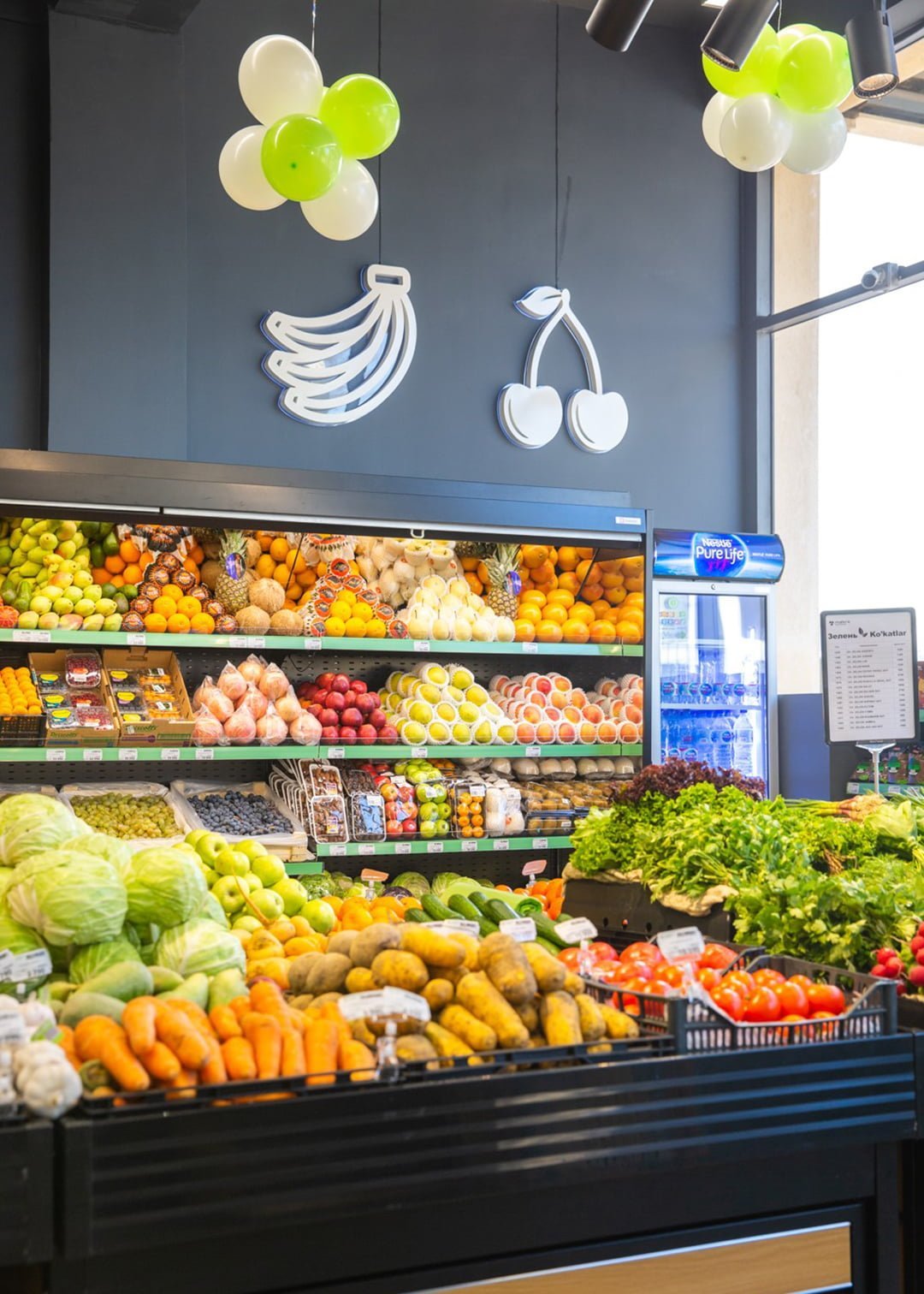
– What are the positions of the fruit and vegetable trade in which you can and cannot successfully compete with the bazaars?
For imported products, we are very competitive in this segment in terms of prices. This, in particular, concerns citrus fruits, potatoes, and a number of other products. This is due to the fact that VAT is already included in the price of imported products regardless of where it goes be it to a bazaar, supermarket chain, etc.
If we talk about local products, then during the season we can successfully compete in prices for apples, tomatoes, and table grapes. As for the rest of the positions, we sometimes lose here.
– Which horticulture position is the most problematic for you?
Berries. The fact is that for the majority of fruit and vegetable items, we work with suppliers on a return basis. In the case of berries, suppliers do not accept this condition. In addition, it is not possible to provide berries to all of our chain stores due to their high prices.
– How important is the fresh greens segment for you today? Are there any trends to expand the range of this segment by adding new types of greens, taking into account, for example, the increased consumption of lettuce salads?
Here we keep up with the times. I want to praise the entrepreneurs who have started producing new types of greens. These are new technologies for the production of salad mixes. Today, almost all our stores have separate refrigerators from suppliers with packaged chopped single and mixed greens. The assortment of greens is growing and, most importantly, the interest of buyers in these products is growing. Even 7-8 years ago, products like broccoli were considered a luxury in the Uzbek market. Today, it is sold in almost every store.
Growth in the greens category is very important for retail as greens are an expensive category. For most people, greens are associated with a healthy diet and when a person thinks about their health, they usually no longer try to save on it.
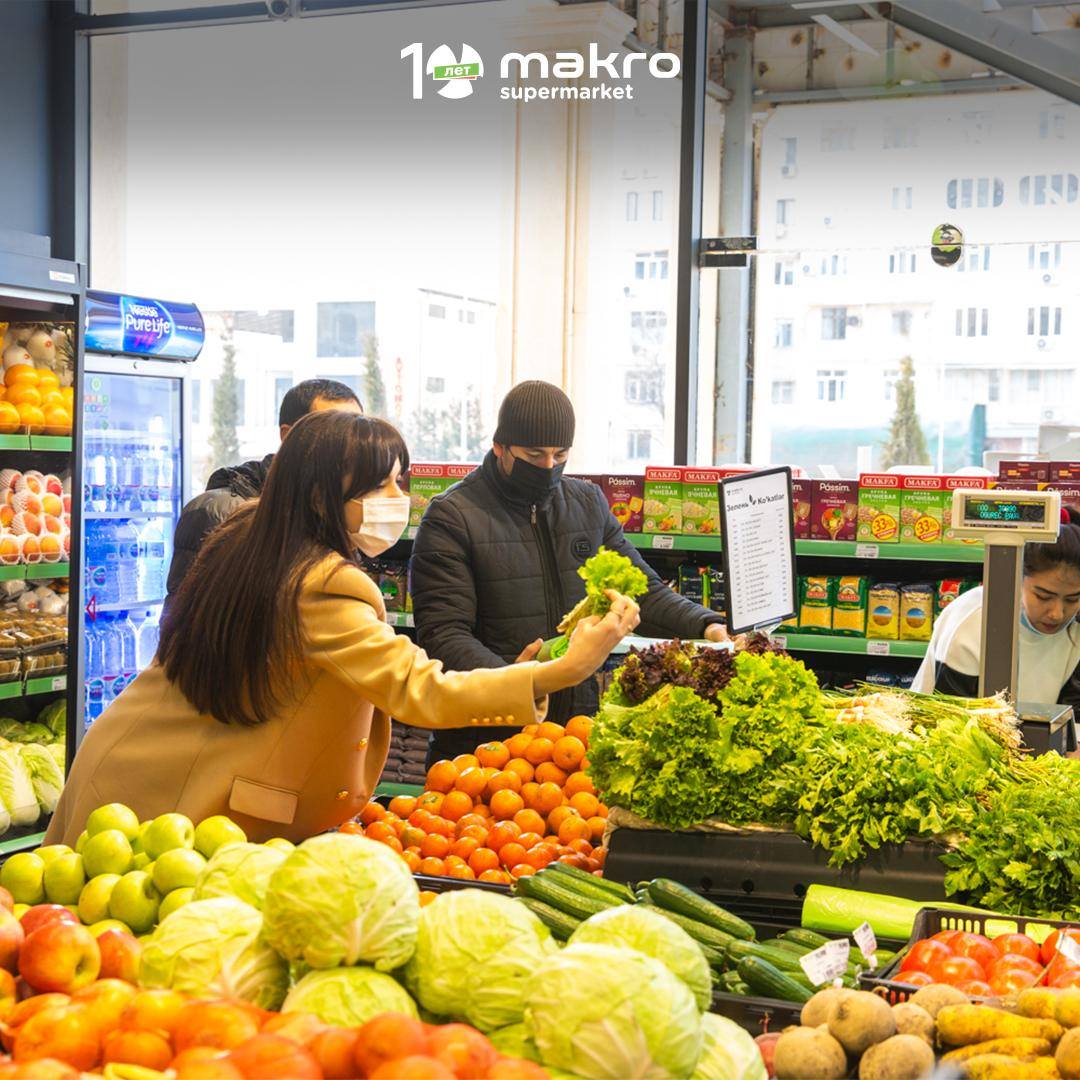
– Considering such trends, is there movement in the greens market of Uzbekistan towards microgreens since this has become very popular in many countries recently?
Unfortunately, there is no such movement in Uzbekistan yet. In my opinion, this direction is new to the markets of Western countries.
– You said that you are not a premium segment store and yet Makro is a confident leader in assortment judging by the EastFruit retail audits of the supermarket produce departments in Uzbekistan. Given the opportunities to improve the quality of merchandising and information content, Makro may well qualify for the premium segment.
Unfortunately, there is already a well-established opinion that Makro is an expensive store. We are trying to break this stereotype so we are following the path of private label development (e.g., the chain’s own trademark, private label, etc.). It is rather difficult to develop private labels in the fresh market segment. Our goal is not only to provide the first price on the shelf of our store but also to make our first price compete with the price of any other store. This is a priority for us.
In express format stores, the assortment of fruits and vegetables is much smaller with only those in which there is an urgent daily need. It is on these positions and the reduction in prices for them that we will work on in the future.
– You mentioned that your share of suppliers-producers of fruit and vegetable products is no more than 35-40%. What is the conventional portrait of such a supplier in Uzbekistan and what is necessary to supply those products to the Makro network?
I will tell you about such a supplier using the example of GDF – Gold Dried Fruits. This company has large areas of its own greenhouses and stone fruit orchards. Today, we have signed a one-year contract with them for the supply of greenhouse vegetables (cucumbers, tomatoes), greens (iceberg lettuce), as well as cherries and peaches. In addition, they supply us with a unique product – the earliest melons of the season. This supplier has its own processing and very strict standards in handling, sizing, labelling, and packaging. For example, they no longer use wooden containers for the delivery of products. This is very important for us today. We have already received the ISO 9001 certificate and, most importantly, the HACCP standard food safety certificate. Our RC, management system, and the first two stores have already passed this certification. Throughout this year we will continue to certify our stores. One of the requirements of this certification is the absence of wooden boxes for fruit and vegetable products. Today, our suppliers supply fruits and vegetables in plastic containers because there are problems with cardboard packaging in the Uzbek market.
– Do you use the pooling system of reusable folding plastic boxes that can withstand about 200-400 revolutions of fruit and vegetable products, which are widely used in the EU and Ukraine?
We haven’t come to this technology yet. Our plans for today are to standardize all fruit and vegetable crates, taking into account our limited space. At the same time, we want to lease such containers to producers so that in the future they will supply their products in it to our network.
“For suppliers wishing to work with us, we have a 3-month trial period”
– If a farmer is psychologically ready to work with your network and has the required volume of products for delivery, what other characteristics should he or she have in order to approach your purchasing department and offer services as a partner?
First of all, a supplier must be a VAT payer. Secondly, it is important for us to guarantee the supply of the annual volume of products, unless, of course, we are talking about seasonal products. The third point is the terms of payment.
In addition, we study the products offered to us such as their quality, packaging, and other characteristics. We offer a trial period for cooperation since there are unscrupulous suppliers who send the first batch as quality products then supply products of inferior quality in subsequent batches. We monitor the consistency of quality in each batch. We give any supplier a 3-month trial period. During this time, we study in detail the sales of the products supplied by them, we study the price, the display of the goods on the shelf, etc. Based on this information, we make a decision on further work with the supplier in the future.
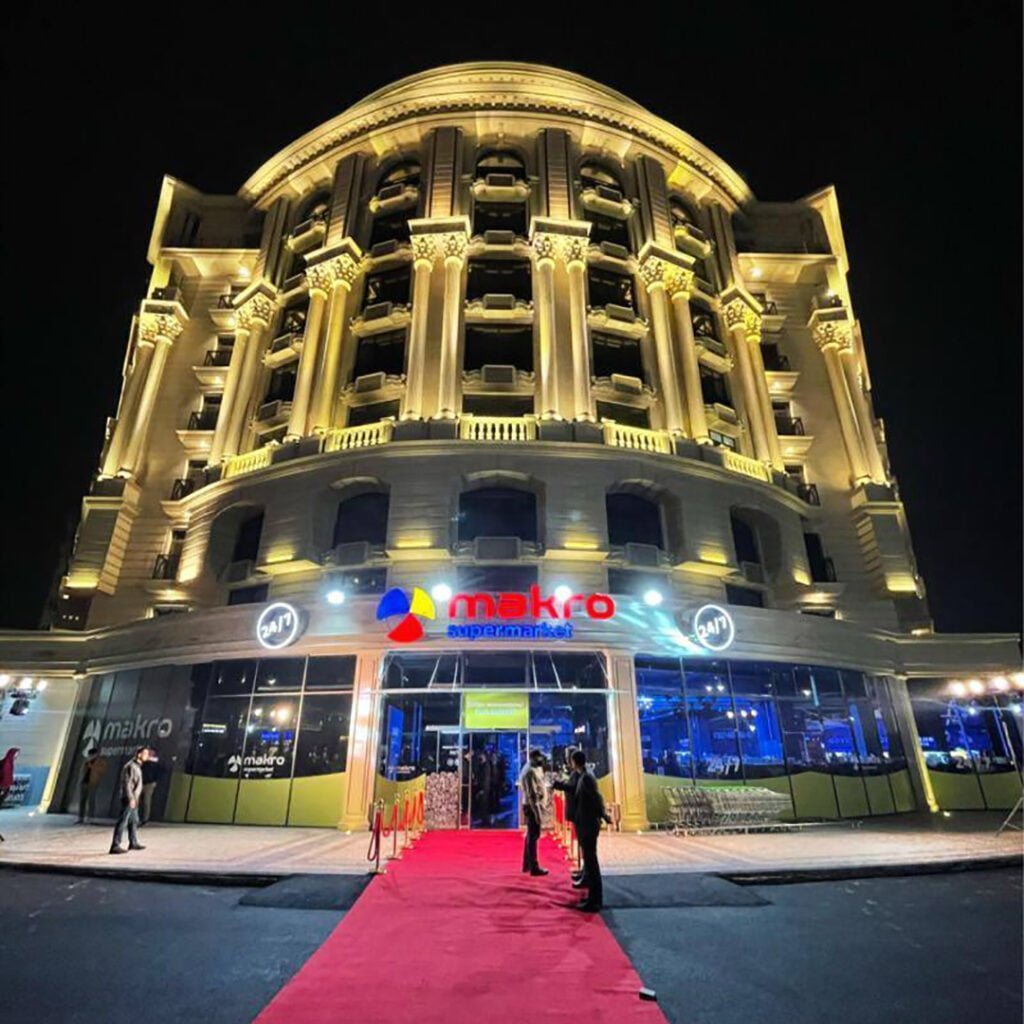
– An interesting position is bananas. Zafar Khashimov, the founder of Anglesey Food, which also includes the Korzinka.uz chain, said that bananas are the best-selling item in the fruit and vegetable segment of supermarkets in Uzbekistan in terms of volume. Meanwhile, according to our data, the consumption of bananas in Uzbekistan is almost the lowest in the world. How are you doing with the sale of bananas in the Makro chain?
The banana is also among the leaders in our country. This year, bananas occupy 31.1% of the share of sales of all fruits. This is a fairly high figure. However, I do not agree that this is the best-selling SKU with us, but it is in the lead every year. This year, for example, bananas are in second place.
– What are the Top-3 best-selling fruits and vegetables in your network for imported and local Uzbek products respectively?
The Top-3 import positions are bananas, apples, and mandarins. The Top-3 local products are apples, lemons, and pears. Last year (2019), this list also included table grapes, which was replaced by lemons this year. When we consider the Top-3 imported products, the gap between bananas and apples is very large. As I already said, the share of bananas in the sales of all fruits is 31.1%, while apples are only 16% and mandarins are only 9%.
– Are the mandarins a product from Pakistan?
Mandarin is the only category of fruit and vegetable products that we have imported ourselves over the past 4 years. The leader in the mandarin segment today is the Medovka variety from China. It is a seedless citrus fruit with a thin skin. This position competes with Georgian mandarins. True, Georgian citrus fruits ripen much later than Chinese ones. Chinese importers can ship their products at the end of October.
In 2020, there was a transport collapse with supplies from China due to delays in the transhipment of goods at the Sino-Kazakh border. This almost doubled the price of Chinese mandarins. Then, there was a transport collapse associated with the supply of Turkish mandarins. At the same time, a significant amount of Pakistani mandarins remained on the market. By the end of the year, the market had already stabilized and was saturated with supply.
– Have you given up direct imports this year? Do you plan to do this in the future?
We refused due to the fact that due to the coronavirus pandemic, the cost of transportation has increased significantly. We refused to take the risk of “freezing” money at such a high cost. Due to the increased cost of transportation, the price of products also increased while the suppliers of these fruits did not receive a higher price for their products.
– Some food retail operators are also large operators of the wholesale market, importing volumes of products that are many times higher than the sales in their networks. This practice is specially developed for those items that require infrastructure improvements. Do you have such plans?
We studied this issue in terms of banana imports, but so far such projects have been postponed. However, I think that over time we will return to this topic. From time to time, we import, for example, Russian potatoes, when we understand that the harvest of local products on the market is running out, but this is not a consistent practice.
“We see online trading as the company’s potential future.”
– How did the coronavirus pandemic affect the sales of fruits and vegetables? Which vegetables and fruits sales in your network have grown and which have fallen?
If we talk about fruit and vegetable sales, then garlic sales have grown the most. The increase in sales of garlic showed a record of 962% for the year followed by potatoes, onions, dill, and radishes. However, if we talk about sales volumes, then the leader is potatoes. We sold it with zero mark-up and people bought it quite actively.
If we talk about the most affected segments, then it is worth highlighting the finished product. We ourselves produce salads and pastries and their sales have decreased threefold.
– Is the HoReCa segment your client?
HoReCa is our client. We have contracts with large hotels where there are many restaurants with large restaurant chains. In addition, we are the exclusive distributors of such brands as the Russian Miratorg, a major meat producer, and Vici, a Lithuanian seafood producer. We are also distributors of frozen fruits and vegetables, including berries and all kinds of cocktail mixes.
In fact, speaking about the sale of frozen products, we took a difficult path. It all requires refrigeration facilities, warehouses, special transport, and delivery conditions, but the frozen food category is growing dramatically. Personally, I associate this with a change in the rhythm of people’s lives. 5 years ago, I find it hard to remember the presence of such an assortment of semi-finished products on store shelves. Today, they are presented, as there is consumer demand for them.
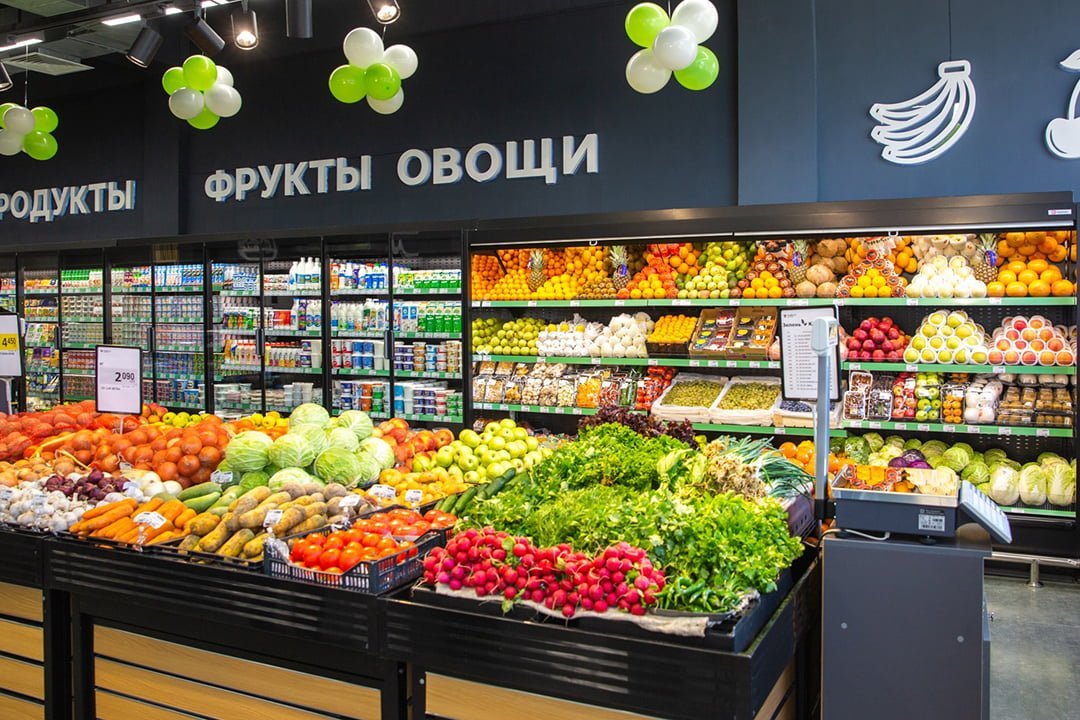
– You have a very good online store. You previously stated that during quarantine it was unable to handle customer orders. Then, as the quarantine was cancelled, this number decreased again. How important is the online trading segment for Makro?
If we talk about the share of sales through online trading, today it is insufficient in customer confidence, technological process, and speed of delivery. It is necessary for people to get used to it. This year we are launching our Dark Store, the first in Uzbekistan. We have made a decision to work on online delivery for our stores, but we are ready to launch any online aggregator on our platform that will offer online delivery services.
Zakaz.uz is an internet aggregator that is already operating in Uzbekistan. They can work with any of the stores and they are great. Unfortunately, due to the pandemic, they had a long delay in launching. Instead of in March, they opened only at the end of last year. They invest in Internet advertising and from time to time we even compete in this. It seems to me that shelf selection for an online store is obviously a business with great restrictions. The biggest example is out of stock and picking off the shelves is always a surprise. Therefore, our Dark Store format is a different approach that can guarantee the availability of goods because there will be a direct link to the online store. This will also speed up order collection.
“We conduct quality control of fruit and vegetable products twice”
– You have already mentioned the quality standards for fruits and vegetables in your stores. Where did you get them from? Did you use ready-made ones or developed standards you needed by trial and error?
Since 2016, we have been negotiating with representatives from the French network Auchan. Unfortunately, they failed to enter the retail market of Uzbekistan, but the team that worked here for a long period of time brought a whole book of fruit and vegetable standards for the first time and this was the base. However, a distinguishing feature of today’s stores versus yesterday’s is that quality control today occurs twice at the DC and directly in the store.
It is worth noting that in small-format stores, we do not have the opportunity to carry out quality control at the entrance. Therefore, there is a so-called confidential shipment of goods from the supplier. A specialist from Ukraine today heads the department for product quality control and she is also involved in the implementation of ISO standards. Therefore, all our quality standards for fruit and vegetable products have been supplemented by international requirements. I cannot say that we have time to follow them 100%. However, work in this direction is being carried out, given that not everything here depends on us and a lot of work should be done by product suppliers. For example, if previously we had frozen products that could have been brought by a Zhiguli car, today no one would dare dream of doing it, even in a nightmare.
– Today, supermarkets from the EU, the US, and a number of other countries present various initiatives to minimize the negative impact of product consumption on the environment. This concerns the transition to reusable containers, abandonment of plastic bags, and emphasis on the consumption of local products. Do you have similar green initiatives?
We have such initiatives and we are rightfully proud of them. We are the first and only company in Uzbekistan to replace all plastic bags with biodegradable ones. First, we introduced using such bags at the checkout. In the second stage, we replaced plastic bags with biodegradable ones at the packaging stage all fruit and vegetable products. We do not make money on the bags but sell them at cost. People have come to understand that they need to be used more rationally. We have our own nylon bags called “I am good” designed for a load of 25 kg. Plus, very soon we should have fabric bags that have a folding design taking up as little space as possible for daily purchases. It is designed for 10 kg of weight.
In regards to ecology, we support our partner companies in various social projects related to, for example, planting trees in parks, but we are not particularly advertising this yet. Also, the process of sorting waste inside the stores has been introduced in our network.
***
EastFruit would like to thank Roman Sayfulin and the Makro supermarket chain for their openness and we wish them every success. We believe that it is very important for all participants in the horticulture market – from producers to wholesalers – to understand that whether we want it or not, the retail trade is transforming from bazaars to more organized formats. The openness of all participants in the transformation process will allow us to focus on the opportunities and minimize the risks of switching to a different trading model.
The use of the site materials is free if there is a direct and open for search engines hyperlink to a specific publication of the East-Fruit.com website.




